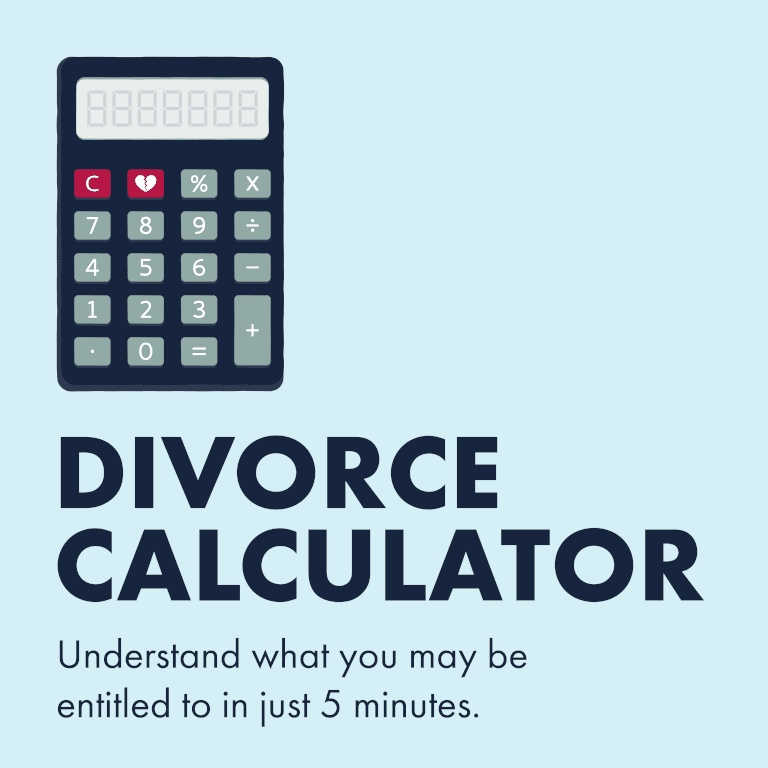What is a postnuptial agreement?
A postnuptial agreement is a document that is drawn up if a couple did not sign a prenuptial agreement before marriage or a civil union. It sets out their intentions of how any assets should be divided should the relationship break down.
read morePrenuptial (prenup) and postnuptial agreements (postnup) are similar, offering a certain level of protection by setting out the ownership of belongings (money, assets and property).
It is important to note that postnuptial agreements are not legally binding in England and Wales and are considered by a court along with other factors including the length of the relationship, the financial assets and the contribution made by each person.
A postnup can be made at any point following marriage or a civil union. It can be used to address the situation at that time and make provisions for the future – for example, if you have children.
It is important to get an expert postnuptial agreement solicitor to draft the document and ensure that you both have legal advice and full financial disclosure when deciding the terms.
Our team can advise you on this and is experienced in drafting a wide range of postnuptial agreements, from multi-million agreements with complicated assets to smaller agreements covering property and inheritance for children.
Key Postnuptial agreement information
-
How long after marriage can you get a postnuptial agreement
-
You and your spouse can create a postnuptial agreement at any point during your marriage. As a ‘postnup’ covers the ownership of specific assets, and how they should be divided in the event of divorce, it is best to consider one during times of significant financial change.
-
How much does postnup cost?
-
Much like a prenup, the cost of a postnuptial agreement will vary depending on the complexity of your assets and the amount of legal advice you require. However, a postnup can provide protection down the line and can be a sensible financial investment.
-
Can I write my own postnuptial agreement?
-
According to the specific criteria that ensures a postnup can be considered by the court, it must be drafted by a lawyer and both parties must have received independent legal advice. To ensure you can satisfy the requirements and enable your agreement to be considered by the court, contact one of our specialist family lawyers.
-
Can a postnuptial agreement protect future assets
-
If you are expecting inheritance or a payout, even post-separation, a postnuptial agreement can help you protect your future assets. The same protections apply to future assets as current ones, so your partner will need to agree to the terms with a full understanding of what they entail.
-
Can postnups cover child related matters?
-
For both postnups and prenups, child-related matters such as custody and maintenance cannot be included. Maintenance is governed by the Child Maintenance Service, and any child arrangements will need to be agreed between you and your ex-partner at the time of separation or divorce. Should you not be able to agree, the family court will intervene in the best interests of your child.
Our other financial family law services
 Use the calculator
Use the calculator
Why would you need a postnuptial agreement?
Couples might choose to draw up a postnuptial agreement for many reasons. These might include:
- Wanting to protect an inheritance
- To gain clarity on ownership of certain assets, including businesses
- To provide clarity and protection when children are involved
- To gain financial security in the event of taking time out of work, such as forstay-at-home parents
- Failure to draw up a prenuptial agreement
What does a postnuptial agreement include?
Postnuptial agreements are tailored to the couple, so they can include many aspects depending on your needs. Agreements are usually centred around finances and often incorporate factors such as:
- Assets and debts (and how any outstanding debts will be paid for)
- Income (including any expected gifts and/or inheritance)
- Any future income or gains (including property)
- A list of personally and jointly owned belongings
- How much maintenance will be paid to your ex-partner in the event of a divorce/separation
- How any property will be divided (such as second homes)
- Any insurance coverage, including life, medical and disability
Meet our postnuptial agreement solicitors
We offer an award-winning service
 Download the guide
Download the guide
Are there any situations in which a postnuptial agreement is not recommended?
Because postnuptial agreements are not legally binding, it is important to remember that an agreement can be overruled by the court if it is deemed to be unfair to one member of the party in the event of divorce.
read moreIt is also imperative that each party receives expert legal advice to be able to make an informed decision about the details of the agreement and is not put under pressure to draw up a document they disagree with.
A couple’s circumstances can change and it is a good idea to revisit a postnuptial agreement regularly to make sure it reflects the current situation. Factors that could alter an agreement include having children, receiving a large inheritance or acquiring additional assets.
While pre and post-nups are not automatically binding in England & Wales, they are heavily persuasive and will likely be upheld by the court where needs are met, accurate disclosure and both parties have had legal advice.
Why choose Stowe Family Law?
As the only national law firm fully dedicated to family matters, our expert team offers professional advice so you can make a fully informed decision about your divorce.
We are proud to be rated ‘Excellent’ on Trustpilot. Check out our reviews to see what our previous clients have said about our service.
We feature in The Legal 500 rankings and are fully authorised and regulated by the Solicitors Regulation Authority (SRA).
We keep you informed. Take a look at our support section, which features a range of helpful guides, focusing on important topics including finances and mediation.
Let's ask Legal 500
Having trained as a barrister, Sebastian Burrows is able to conduct his own advocacy and does so very successfully and persuasively. Seb has built up a strong reputation in matrimonial finance matters, particularly when it comes to dividing pensions, litigating city bonuses and achieving top-class results in dividing property portfolios. His case a… Read morenalysis is clear and his instructions succinct and to the point. His natural affable charm is the icing on the cake of his considerable legal and practical knowledge. He is very able – a gifted litigator and strategist.Let's ask Mrs F
When experiencing maintenance issues after my divorce Shanika Varga helped me in resolving these issues. She provided a very clear explanation of how to go forward and was very efficient in the whole process of dealing with the situation which brought me to an agreeable result. Shanika was very approachable, kind and caring and I would recommend he… Read morer to others.Let's ask A Matthews
Luanne has been fantastic in helping me navigate the complexities of my divorce, child arrangements, and potential financial orders. Her advice was always delivered professionally, yet in a way that was easy to understand and empathetic to the emotional rollercoaster I’m currently experiencing. Stowe Family Law, as a firm, were transparent fr… Read moreom the beginning about the potential costs and stages of my case. This honesty gave me clarity and peace of mind, knowing that everything was being managed properly.Let's ask Legal 500
Claire Cleary provides specialist advice in complex and high net worth cases. Calm, focused and unflappable.Let's ask Legal 500
Jemma Slavin is a passionate advocate of her clients’ causes and knows each case extremely well. Jemma is alive to what the client needs from the legal proceedings and does all she can to help them achieve it.Let's ask Ms G
Joanna Newton is tough, knowledgeable and dependable, she listened to me and discussed my options with me. She advised me where I stood and what my rights and my ex-husband's rights were. She gave me trusted advice about my home and financial security. I would recommend Joanna without any reservations.Let's ask Legal 500
Helen Miller is great to work with in order to achieve a fair resolution on financial matters. She is approachable, takes a sensible and pragmatic approach, but is certainly no pushover. She represents her clients well.Common questions on postnuptial agreements
Common questions on postnuptial agreements
-
Is a postnuptial agreement legally binding?
Postnuptial agreements in England and Wales are not legally binding but they are taken into consideration by the court in the event of a separation. It can be upheld by the court if the postnup is considered fair and neither party was pressured into it.
The rules differ in Scotland, where postnuptial agreements can be legally binding depending on the conditions.
-
What is the difference between a prenuptial agreement and a postnuptial agreement?
A prenuptial agreement is drafted before a couple marries or enters into a civil union. It is more common than a postnuptial agreement, which is drafted for couples who are already married or in a civil union.
Postnups can be useful if there are any major changes in a couple’s financial situation, such as significant additional assets, inheritance or children, or if a couple did not get a prenup.
-
Do I need a postnup if I have a prenuptial agreement?
If a couple has a prenup, a postnuptial agreement is not usually necessary unless financial circumstances change dramatically. If either party receives an inheritance or acquires any significant assets, it is wise to revisit any previous agreement.
-
Do I need a postnuptial agreement solicitor?
A postnuptial agreement solicitor can offer professional legal advice and ensure both parties have a thorough understanding of what they are entering into. An expert lawyer can also make the postnup fair for both individuals, meaning it is more likely to be upheld by a court in the event of a separation.
Our postnuptial agreement solicitors offer a friendly, tailored approach and strive to make the process as smooth as possible.
-
Is there an alternative to postnuptial agreements?
A cohabitation agreement might be suitable for couples who are not married or in a civil union but are living together. It can help protect financial assets and set out arrangements for children should the relationship break down.
A cohabitation agreement can be especially useful if one person has contributed more to a property or if there are unequal assets.
Latest advice
Newsletter Sign Up
Sign up for advice on divorce and relationships from our lawyers, divorce coaches and relationship experts.
Privacy Policy Close newsletter modal























